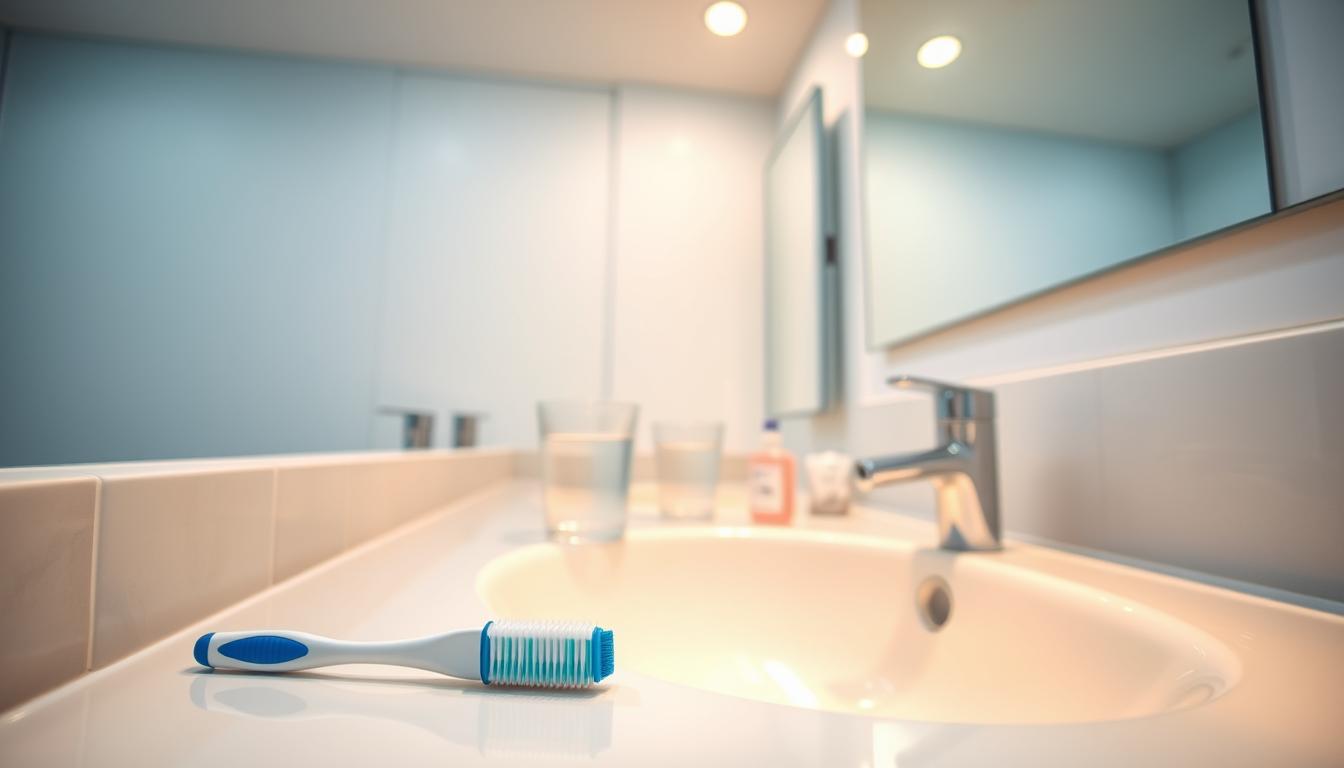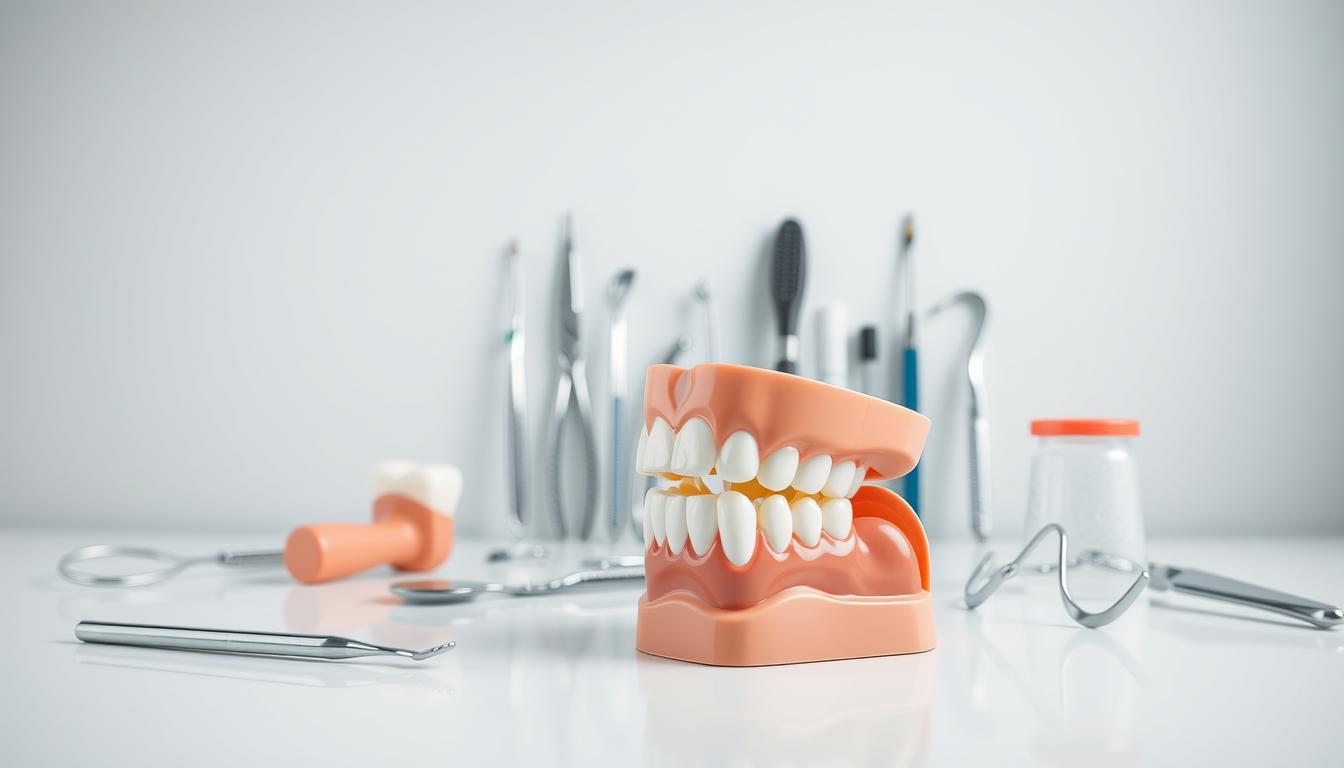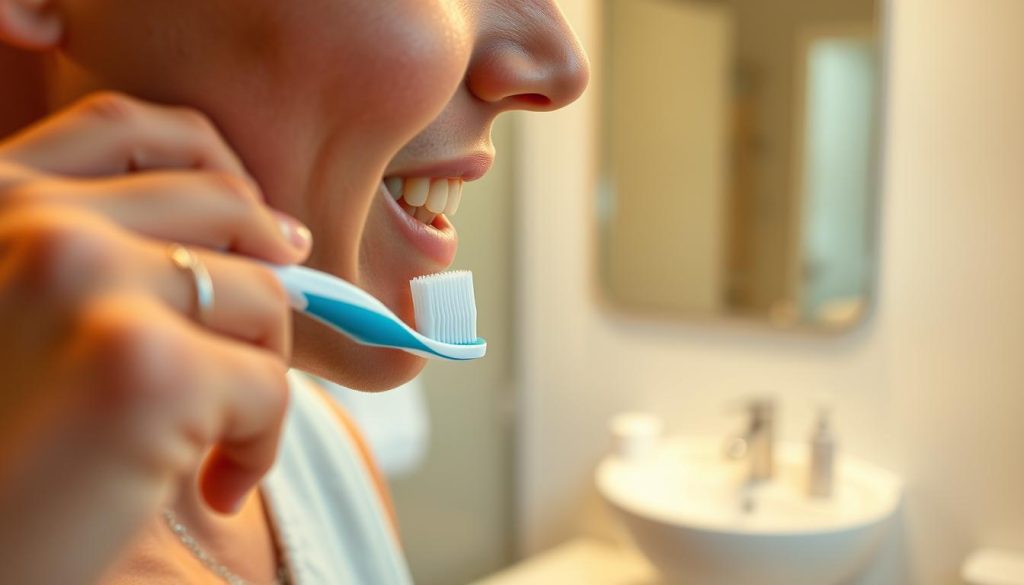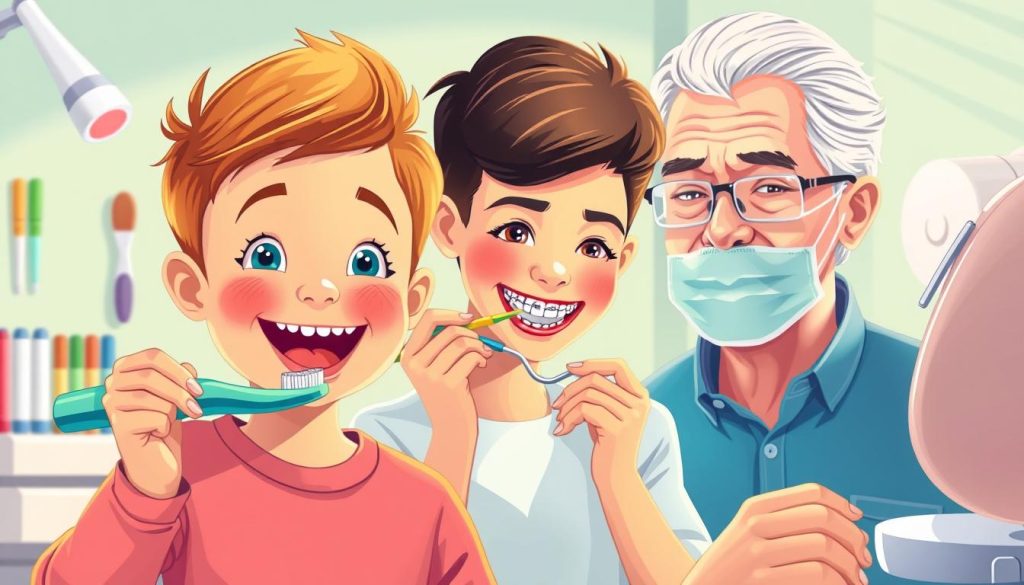Are you aware that a simple change in your daily routine can significantly reduce your risk of tooth decay?
Preventing cavities doesn’t just involve regular brushing and flossing; it’s also about adopting natural methods that strengthen your teeth and promote overall oral health.
By incorporating certain habits and being mindful of your diet, you can effectively prevent tooth decay and maintain a healthy, radiant smile.
Key Takeaways
- Understand the importance of natural tooth decay prevention
- Discover simple dietary changes to protect your teeth
- Learn effective oral hygiene practices beyond brushing and flossing
- Explore natural remedies for cavity prevention
- Find out how to maintain a healthy smile through lifestyle adjustments
Understanding Tooth Decay and Its Natural Prevention
Understanding the intricacies of tooth decay and its prevention through natural means is crucial for maintaining a healthy, cavity-free smile. Tooth decay, a prevalent oral health issue, is influenced by various factors that can be managed through natural prevention methods.
What Causes Tooth Decay?
Tooth decay is primarily caused by the bacterial breakdown of food, especially sugars and starches, on the tooth surface. This process leads to the production of acid, which damages tooth enamel and initiates decay. Poor oral hygiene and a diet high in sugars and acids exacerbate this condition.
Why Choose Natural Prevention Methods?
Natural prevention methods offer a holistic approach to oral health, focusing on diet, hygiene, and lifestyle changes to prevent tooth decay. These methods are not only effective but also reduce the reliance on chemical-based products, promoting overall well-being. Holistic tooth decay prevention involves understanding the interconnectedness of oral health with general health.
The Balance of Oral Microbiome
A balanced oral microbiome is crucial for preventing tooth decay. It involves maintaining a healthy ratio of beneficial bacteria to harmful bacteria in the mouth. Natural remedies for tooth decay often focus on promoting this balance through diet and oral hygiene practices.
The Role of Saliva in Protecting Teeth
Saliva plays a vital role in protecting teeth by neutralizing acids, remineralizing tooth enamel, and facilitating the removal of food particles. Stimulating saliva production through natural means, such as chewing sugar-free gum or consuming saliva-stimulating foods, can enhance oral health.
How to Prevent Tooth Decay Naturally Through Diet
The food we eat plays a significant role in our oral health, and making the right choices can help prevent tooth decay naturally. A diet rich in essential nutrients can strengthen teeth and make them more resistant to decay.
Foods That Strengthen Tooth Enamel
Tooth enamel is the hard, outer layer of the teeth that protects them from decay. Certain foods can help strengthen this layer, making teeth more resilient.
Calcium-Rich Foods
Calcium is crucial for healthy teeth. Calcium-rich foods like milk, cheese, and yogurt can help strengthen tooth enamel. Incorporating these foods into your diet can be as simple as having a glass of milk with breakfast or snacking on cheese.
Phosphorus Sources
Phosphorus is another mineral that is important for oral health. Foods rich in phosphorus, such as eggs, fish, and nuts, can help remineralize teeth.
Vitamin D for Absorption
Vitamin D is essential for the absorption of calcium and phosphorus. Fatty fish, fortified dairy products, and sunlight exposure are good sources of Vitamin D.
Sugar and Acid: The Main Culprits to Avoid
Sugary and acidic foods and beverages are significant contributors to tooth decay. Limiting or avoiding these can greatly reduce the risk of cavities.
- Sugary snacks and drinks
- Citrus fruits and juices
- Carbonated beverages
Hydration and Its Impact on Dental Health
Staying hydrated is crucial for oral health. Water helps wash away food particles and keeps the mouth moist, promoting saliva production, which is essential for neutralizing acids.
Best Beverages for Dental Health
Water is the best beverage for dental health. It helps cleanse the mouth and promote saliva production.
Drinks to Limit or Avoid
Sugary drinks like soda and sports drinks can lead to tooth decay. Limiting these beverages can help protect your teeth.
Chewing Foods That Clean Teeth Naturally
Certain foods can help clean teeth naturally when chewed. These include:
- Apples
- Carrots
- Celery
Chewing these foods stimulates saliva production, which helps neutralize acids and remineralize teeth.

Natural Remedies and Ingredients for Cavity Prevention
In the quest for a healthier smile, natural remedies offer a promising approach to cavity prevention. By incorporating these methods into your daily oral hygiene routine, you can significantly enhance your dental health.
Oil Pulling: Ancient Practice for Modern Dental Care
Oil pulling is an ancient Ayurvedic practice that has gained popularity in modern times for its dental health benefits. It involves swishing oil in the mouth to reduce bacteria and promote oral hygiene.
How to Perform Oil Pulling Correctly
To practice oil pulling, take one tablespoon of oil (such as coconut or sesame oil) and swish it around your mouth for 15-20 minutes. Ensure you do this on an empty stomach for best results.
Tips: Start with a shorter duration and gradually increase as you get accustomed to the practice.
Best Oils for Dental Health
Coconut oil and sesame oil are highly recommended for oil pulling due to their antimicrobial properties.
- Coconut oil: Contains lauric acid, which has antibacterial properties.
- Sesame oil: Rich in antioxidants and has been shown to reduce Streptococcus mutans bacteria.
Herbal Solutions for Dental Health
Herbal remedies have been used for centuries to promote dental health. They offer a natural alternative to chemical-based products.
Clove Oil and Its Antibacterial Properties
Clove oil is known for its analgesic and antibacterial properties, making it effective in reducing tooth pain and fighting oral infections.
Neem and Tea Tree Oil Applications
Neem and tea tree oil are renowned for their antimicrobial properties, helping to control plaque and prevent gingivitis.
- Neem: Traditionally used in Indian medicine for its oral health benefits.
- Tea Tree Oil: Known for its ability to reduce inflammation and fight bacteria.
Licorice Root and Aloe Vera Benefits
Licorice root and aloe vera are beneficial for oral health due to their anti-inflammatory properties.
- Licorice Root: Helps in reducing inflammation and soothing mouth sores.
- Aloe Vera: Known for its healing properties and ability to soothe gum inflammation.
Mineral-Based Remedies
Minerals play a crucial role in maintaining dental health. Remineralization is key to preventing tooth decay.
Remineralizing with Calcium and Phosphorus
Calcium and phosphorus are essential minerals for tooth health. They help in remineralizing tooth enamel, making teeth more resistant to decay.
Xylitol: Nature’s Cavity Fighter
Xylitol is a natural sweetener that reduces the occurrence of cavities by inhibiting the growth of Streptococcus mutans bacteria.
DIY Natural Mouthwash Recipes
Creating your own natural mouthwash can be a simple and effective way to enhance your oral hygiene routine.
Recipe: Mix water with essential oils like peppermint or tea tree oil for a refreshing and antimicrobial mouthwash.
Daily Oral Hygiene Practices for Natural Decay Prevention
Daily oral hygiene is a cornerstone in the natural prevention of tooth decay. By adopting effective practices, individuals can significantly reduce their risk of developing cavities and maintain a healthy smile.
Natural Toothpaste Alternatives
Many commercial toothpastes contain harsh chemicals that can be detrimental to oral health. Natural toothpaste alternatives offer a gentler approach.
Baking Soda Formulations
Baking soda is known for its mild abrasive properties, making it effective in removing plaque and surface stains.
Clay-Based Options
Clay-based toothpastes can help detoxify the mouth and promote healthy gums.
Coconut Oil Mixtures
Coconut oil has antimicrobial properties that can help reduce harmful bacteria in the mouth.
Proper Brushing Techniques with Natural Products
Using natural toothpaste alternatives requires proper brushing techniques to maximize their effectiveness.
Tip: Brush for at least two minutes, twice a day, using gentle circular motions.
Natural Flossing Options and Methods
Flossing is crucial for removing food particles and plaque from between the teeth.
Natural flossing options include silk floss and bamboo floss, which are biodegradable and gentler on gums.
Tongue Cleaning for Complete Oral Health
Tongue cleaning is often overlooked but is essential for removing bacteria that can cause bad breath and affect oral health.
Use a tongue scraper made from natural materials like stainless steel or copper.
When to Seek Professional Dental Care
While natural oral hygiene practices are effective, there are times when professional dental care is necessary.
Warning Signs You Shouldn’t Ignore
Signs such as persistent toothache, sensitivity, or gum recession indicate the need for professional evaluation.
Balancing Natural Care with Professional Treatment
Regular dental check-ups can help identify issues early, allowing for a combination of natural care and professional treatment.
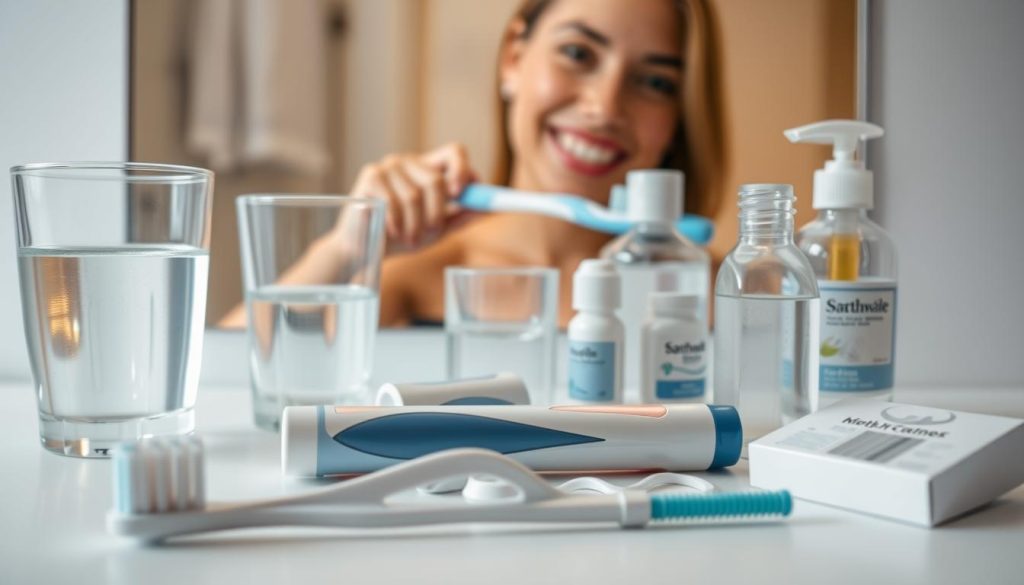
Conclusion
Preventing tooth decay naturally is a multifaceted approach that involves dietary changes, natural remedies, and daily oral hygiene practices. By incorporating foods that strengthen tooth enamel, avoiding sugar and acid, and using natural remedies like oil pulling and herbal solutions, you can significantly reduce the risk of tooth decay.
Daily oral hygiene practices, such as using natural toothpaste alternatives and proper brushing techniques, also play a crucial role in maintaining a healthy smile. By adopting these natural methods, you can protect your teeth and promote overall oral health.
To learn more about how to prevent tooth decay naturally, it’s essential to explore various natural remedies for tooth decay, such as mineral-based remedies and DIY natural mouthwash recipes. By making informed choices, you can take control of your oral health and enjoy a healthier, happier smile.
FAQ
What are some effective natural ways to prevent tooth decay?
Some effective natural ways to prevent tooth decay include maintaining a balanced diet rich in calcium and phosphorus, practicing good oral hygiene with natural toothpaste alternatives, and using natural remedies like oil pulling and herbal solutions.
How can diet help in preventing tooth decay naturally?
A diet rich in calcium and phosphorus can help strengthen tooth enamel, while avoiding sugary and acidic foods can reduce the risk of tooth decay. Additionally, drinking plenty of water and consuming foods that stimulate saliva production, such as crunchy fruits and vegetables, can help neutralize acids and remineralize teeth.
What is oil pulling, and how can it help prevent tooth decay?
Oil pulling is an ancient practice that involves swishing oil in the mouth to remove bacteria and promote oral health. Using oils like coconut, sesame, or olive oil can help reduce the bacterial load in the mouth, which can contribute to tooth decay.
Are there any natural toothpaste alternatives that can help prevent tooth decay?
Yes, natural toothpaste alternatives like baking soda formulations, clay-based options, and coconut oil mixtures can help prevent tooth decay. These alternatives often avoid harsh chemicals found in conventional toothpastes and can be gentler on teeth and gums.
How can I balance natural oral care with professional dental treatment?
While natural oral care practices can be effective in preventing tooth decay, it’s still important to visit a dentist regularly for check-ups and professional cleanings. By combining natural care with professional treatment, you can maintain optimal oral health and catch any potential issues early.
What are some warning signs that I should seek professional dental care?
Warning signs that you should seek professional dental care include persistent toothache, sensitivity, or pain, as well as visible signs of decay, such as cavities or discoloration. Additionally, if you experience bleeding gums, bad breath, or loose teeth, you should consult a dentist.
Can natural remedies like herbal solutions and mineral-based remedies really help prevent tooth decay?
Yes, certain natural remedies like herbal solutions (e.g., clove oil, neem, and tea tree oil) and mineral-based remedies (e.g., calcium and phosphorus) have been shown to have antibacterial properties and can help promote oral health, reducing the risk of tooth decay.
How does saliva help protect teeth from decay?
Saliva plays a crucial role in protecting teeth from decay by neutralizing acids, remineralizing teeth, and washing away bacteria and food particles. Stimulating saliva production through chewing sugar-free gum or consuming crunchy fruits and vegetables can help support oral health.

